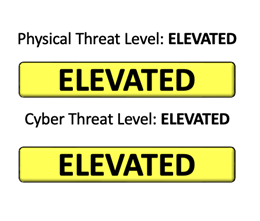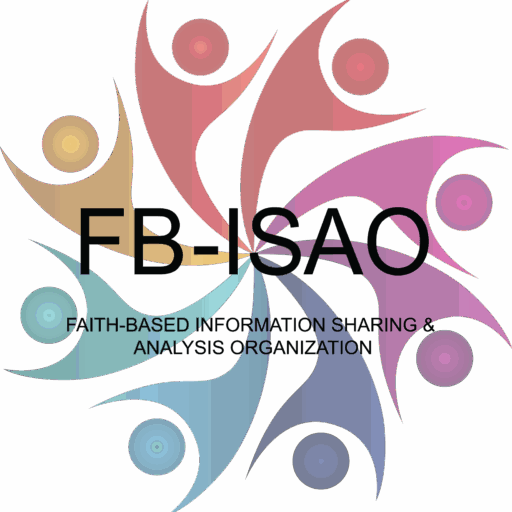Faith-Based Security Headlines
These updates are shared to help raise the situational awareness of Faith-Based organizations to best defend against and mitigate the impacts from all-hazards threats including physical security, cybersecurity, and natural disasters.
Evaluating and Responding to Violent Extremist Hoax Threats
The Office of the Director of National Intelligence (ODNI) | JCAT First Responder’s Toolbox recently published the two-page Evaluating and Responding to Violent Extremist Hoax Threats.
The two pager provides a definition, example, and potential mitigation for the following threats:
- SWATTING
- FEDPOSTING
- FEARMONGERING
- DOXING
Links to resources are provided for the following:
- PLANNING AND TRAINING
- REPORTING AND EVALUATING
- RESPONSE AND INVESTIGATION
- COLLABORATION AND OUTREACH
Analyst Comments:
Those responsible for protecting Faith-Based Organizations should consider reviewing JCAT First Responder’s Toolbox’s Evaluating and Responding to Violent Extremist Hoax Threats document.
Additional JCAT guidance on other topics can be found here.
Hackers now sending physical malicious letters, Swiss authorities warn
From the cybernews posting:
Cyber bandits have launched a malicious campaign across Switzerland using counterfeit letters that appear to be from MeteoSwiss (the Federal Office of Meteorology and Climatology).
The victims report that the letters contain a QR code asking recipients to download a new “Severe Weather Warning App.”
The fraudulent letter pressures recipients by claiming that the app is mandatory and essential for family safety. It instructs users to scan the included QR code with a smartphone and follow the subsequent instructions to download and install the app,
…
The Swiss National Cyber Security Centre (NCSC) warns that fraudsters are using this method to load malware onto mobile devices.
Analyst Comments:
While the above malware attempt occurred in Switzerland, it serves as a warning of what could occur in the United States. QR codes are everywhere. Users should consider ensuring the codes are legitimate before scanning them and infecting their smartphone with malware.
The How To Spot a Fake QR Code Scam [9 New Examples] post by Aura provides information on QR code scams.
The Aura post details the following URL code scams:
- QR code scams on parking meters
- Fake QR codes sent in phishing emails
- Tampered QR codes in restaurants
- Fake QR codes sent through the mail
- QR codes on unexpected package deliveries
- QR codes at sham COVID-19 testing centers
- QR codes sent over social media
- Cryptocurrency QR code scams
- Fake QR code scanner apps that download malware
The Aura post details the following protective measures:
- Look for signs of tampering
- Preview the URL before following the QR code
- Check the destination site for signs that it’s a phishing scam
- Be extremely cautious of QR codes in public places or in the mail
- Never download a QR code scanning app
- Install antivirus software and malware protection
Get the Daily Awareness Post Delivered to your Email!
More Faith-Based Stories
Pro-Hamas Groups Planting Seeds of Domestic Terrorism in US, New Report Says The report: Marching Toward Violence: Background: The Domestic Anti-Israeli Protest Movement
WY: Wright Baptist Church pastor calls law enforcement after threat by congregation member
FL: “Someone set the fire”: Investigation underway after Lehigh Acres church fire
MD: $7,000 reward offered for information on 3 anti-Semitic vandalism incidents in Bethesda
Hundreds of California nonprofits to receive funding to help safeguard against hate-based violence
2,500 Jews descended on Washington, D.C.—Who ensured their safety?
Nicaraguan Regime Exiles Catholic Bishop
Select All Hazard Stories
CA: Explosive device found, detonated outside Torrance courthouse
14-year-old charged with aggravated arson for allegedly starting 52-acre wildfire in South Jersey
Carjacker crashes near Beverly Hills tree-lighting event, injuring 4, police say
Houston man charged with attempting to provide material support to ISIS and The FBI says it stopped a possible terrorist attack in Houston
Fans scuffle despite heavy security presence at France-Israel soccer match
Germany warns of terror threat targeting Israelis during Thailand Full Moon Party
Scoop: Israel destroyed active nuclear weapons research facility in Iran, officials say
Michigan University Student Officials Face Punishment for Anti-Israel Actions
UCLA slammed for ‘chaotic’ response to protest melee in UC independent review
Chinese Chemical Company, Senior Leaders Indicted for Suspected Fentanyl Manufacturing, Distribution
2024 Consolidated Annual Report on Unidentified Anomalous Phenomena, PDF report
Areas of Critical Fire Weather and Heavy Snow Friday National Weather Service
CDC: Measles cases surge worldwide, infecting 10.3 million people in 2023
Fraud network uses 4,700 fake shopping sites to steal credit cards
Yes, the 10 worst passwords still include ‘password’ and ‘secret.’ and NordPass: Top 200 Most Common Passwords
More Security-focused Content




The FB-ISAO’s sponsor Gate 15 publishes a free daily newsletter called the SUN. Curated from their open source intelligence collection process, the SUN informs leaders and analysts with the critical news of the day and provides a holistic look at the current global, all-hazards threat environment. Ahead of the daily news cycle, the SUN allows current situational awareness into the topics that will impact your organization. To sign-up for the SUN, send an email to [email protected].
Learn More About Gate 15’s Enhanced Intel Solutions
This DAP highlights – Evaluating and Responding to Violent Extremist Hoax Threats / Hackers now sending physical malicious letters. DAP also has More Faith-Based Stories and Select All-Hazard Stories. These updates are shared to help raise the situational awareness of Faith-Based organizations to best defend against and mitigate the impacts from all-hazards threats including physical security, cybersecurity, and natural disasters.
This DAP highlights – Evaluating and Responding to Violent Extremist Hoax Threats / Hackers now sending physical malicious letters. DAP also has More Faith-Based Stories and Select All-Hazard Stories. These updates are shared to help raise the situational awareness of Faith-Based organizations to best defend against and mitigate the impacts from all-hazards threats including physical security, cybersecurity, and natural disasters.


